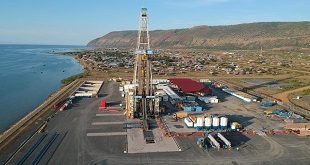
Kampala, Uganda | THE INDEPENDENT | The UNDP Human Development Report 2020 released this week is a sobering reminder that we are at an unprecedented moment in the history of humankind and identifies collective behavior change as a major driver towards that can adjust social norms in combating society challenges.
It says pressures that the people have put on the earth have grown exponentially over the last 100 years taking our planet to the brink. The warning lights for our planets are flashing red and have been for some time.
The report that was published on the 15th of December 2020 and is titled “The Next Frontier – Human Development and the Anthropocene”, says the strain on planet earth mirrors the strain in our societies as inequalities in human development have been increasing and continue to do so. Climate change among other dangerous planetary changes will only make them worse.
Ominous signs of democratic backsliding and rising authoritarianism are worrying and collective action on anything from climate change to the COVID-19 pandemic becomes more difficult against a backdrop of social fragmentation, according to the report.
With scientists now believing that we are entering a new geologic epoch – the Anthropocene – in which humans are a dominant force shaping the future of the planet and the biggest risk to our survival is ourselves, the report explores how social norms that inform choices on transportation, production and consumption can evolve towards norms that reduce planetary imbalances.
“In principle, if a certain action is adopted by enough individuals, it can lead to behavioral tipping and turn into a social norm, generating positive feedback loops that reinforce the same behavior in societies,” asserts the report.
The report further states that social norms are known to be persistent and hard to change, surviving through economic development and political regimes, but when they change, it can happen quickly, usually when new public information becomes available as during the Covid-19 pandemic. Behavioral tipping points when enough people have strong enough attitudes against an existing social norm (or towards a new one) are decisive for norm change.
“Many people perceive themselves and their communities as “too small to make a difference.” They feel overwhelmed by a combination of the scale of the problems and a limited perception of their personal agency” the report adds. “This vision problem has been identified as one of the main obstacles to pro-environmental behavior for decades. It undermines people’s agency because they rely on an overarching entity to take action. But the vision is not necessarily true. Individual action can indeed drive change towards transformation, but only if emulated, and of course, only if directed towards protecting the planet. The planet is affected by the accumulation of myriad acts of individual consumption.”
The authors emphasize that education for sustainable development in schools is at least as important as learning at home. They add that education is essential not only for environmental protection and climate change mitigation but also for climate change adaptation. The higher the average level of education in a country, the fewer deaths due to disasters, even after income, life expectancy at birth, exposure to climate related risks and population density.
The report also calls for financial incentives and regulation as powerful tools in reducing planetary pressures. Even if people do not change their minds, they may still respond to incentives that can either increase or ease planetary pressures.
The report focuses on how incentives help explain current patterns of consumption, production and investment and other choices that lead to the planetary and social imbalances. It explores how these patterns could evolve in ways that would ease planetary pressures and advance human development in the Anthropocene.
One of those incentives is from finance, which encompasses mobilizing resources from firms and savings from people to reward investments that reduce planetary pressures and to penalize or restrict investments that increase those pressures.
The report goes on to say that the SDG impact standards for private equity, debt and venture capital funds can help their managers consider the positive or negative effects of investment practices on people and the planet. The four standards focus on strategy and purpose, operations and management, transparency and performance reporting, and governance practices.
“Financial and monetary authorities are playing a central role during the Covid-19 pandemic. Their choices shape incentives that can encourage a transitioning to a net-zero emissions economic system and reducing socioeconomic inequalities.” .
The report calls for enhancement of international and multi-actor collective action to effect change, it says the norms are not restricted to one country. Particularly in the information age, where ideas zip across borders, the formation of norms can transcend national borders. Powerful norms, whether on conserving energy, using electric vehicles or reducing meat consumption can then galvanize global public policy.
*****
URN
 The Independent Uganda: You get the Truth we Pay the Price
The Independent Uganda: You get the Truth we Pay the Price


